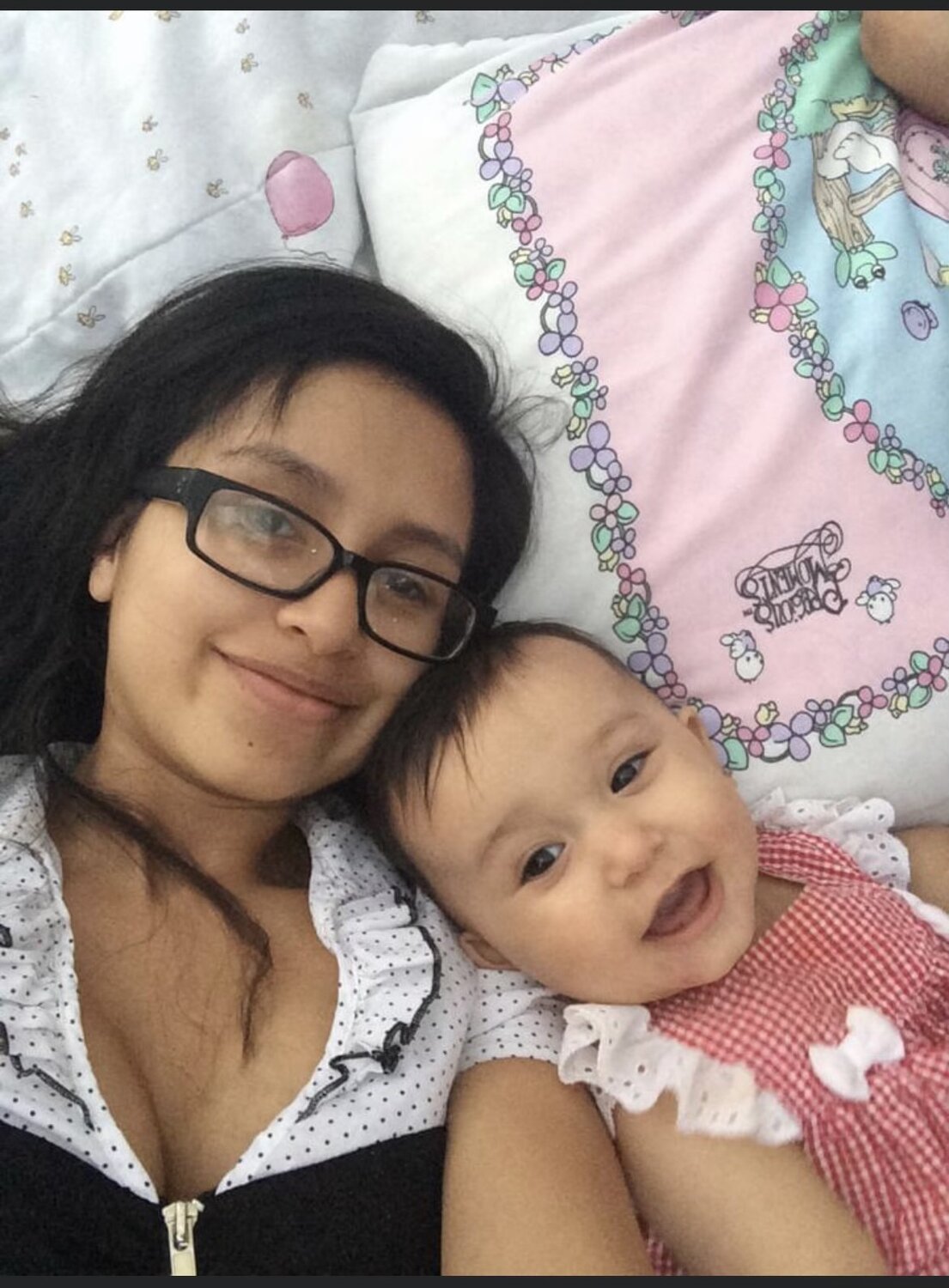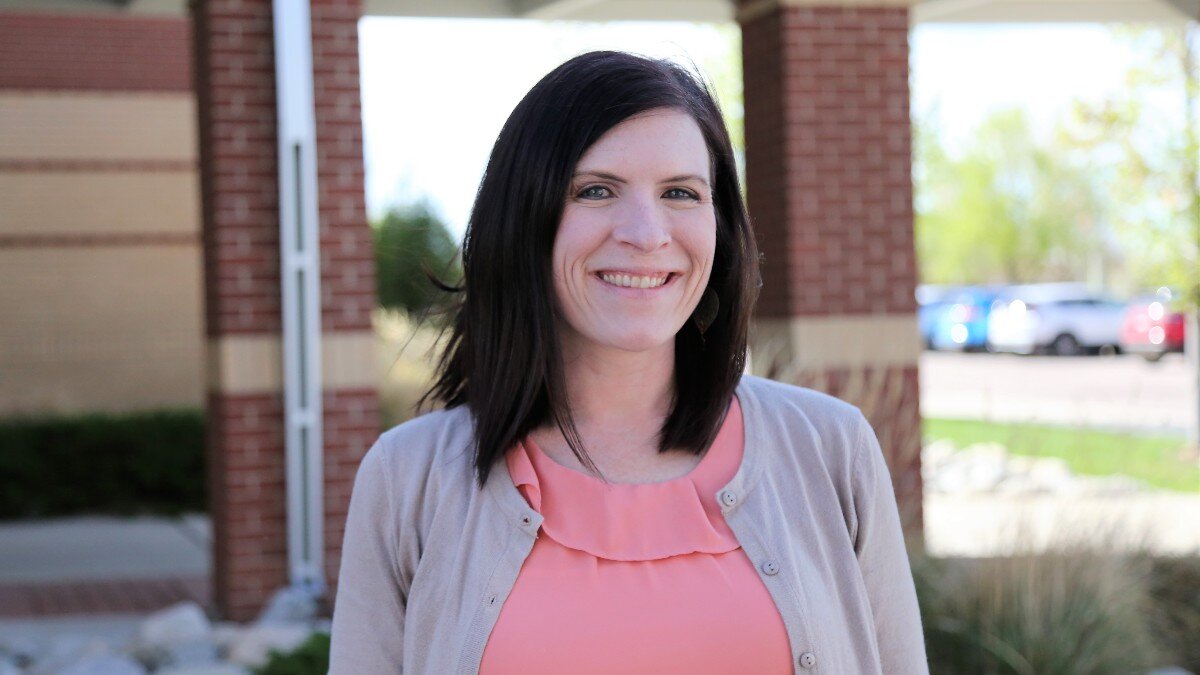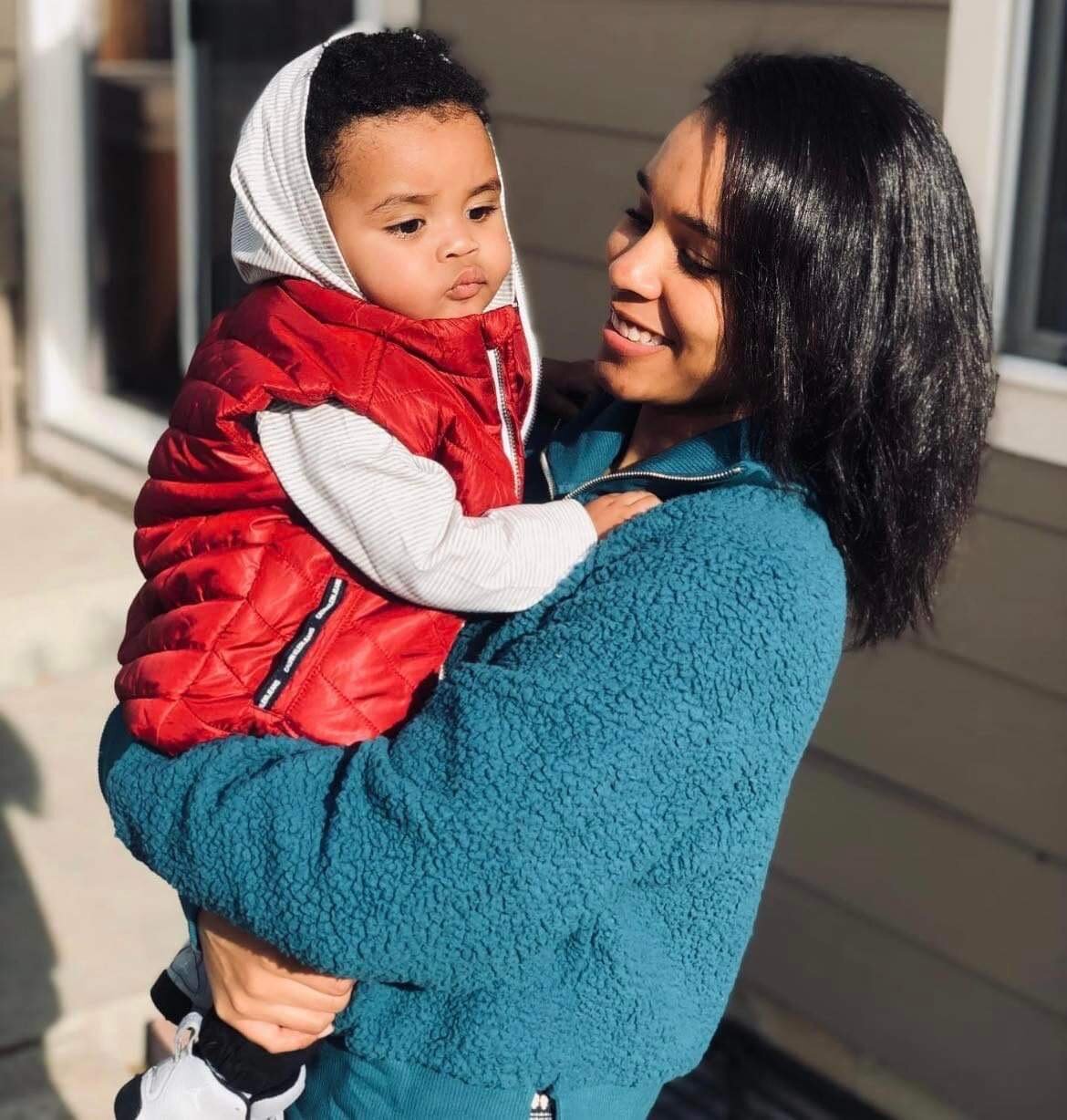How an Aurora Public School program supports young parents

AURORA, Colo. — When Zayra Castaneda gave birth to her daughter at 17 years old, her parents initially worried that she wouldn’t be able to graduate high school. Looking back, if it wasn't for Aurora's Public School’s (APS) Young Parent Support Program, Castaneda doesn't think she would have graduated.
Fortunately for her, a young parent support advocate for APS named Melissa Feeler helped the new mom with baby clothes, diapers and enrolling in a high school with a daycare. Feeler also helped Castaneda register at the Community College of Aurora so that she could become a phlebotomist, a health care professional who collect blood samples.
“My whole education is thanks to her,” Castaneda told Rocky Mountain PBS. “It is hard, but it's possible. Even as a young parent, you can do whatever anyone else can.”

The Young Parent Support Program has been operating district wide for nearly eight years and provides wraparound services for parenting students so that they have every opportunity to complete high school.
The program also partners with Reach Out and Read, a national nonprofit organization that helps incorporate books into pediatric care and encourages families to read together, so that students can start reading to their children. APS students also have access to free childcare through APS’ Early Beginnings program.
Feeler emphasized that every young parent support plan is tailored to the individual student’s needs, and the program seeks to support teen dads just as much as it supports teen moms.
“Our biggest thing is making sure that students have any roadblocks removed that are causing them issues not to be able to access education, health care, childcare, mental health care, food resources, anything like that,” Feeler said.
Data and research show pregnancy and birth are significant contributors to high school dropout rates among girls. Only about 50% of teen mothers receive a high school diploma by age 22.
Colorado has seen a recent trend of fewer teens giving birth. A Colorado Health Institute’s blog on the 2018 County Health Rankings reported that Colorado’s teen birth rate plummeted by 47% between the 2011 and 2018 County Health Rankings reports.
A report by the Colorado Department of Public Health and Environment credits the Colorado Family Planning Initiative for decreasing teen birth rates in Colorado between 2009 and 2015. The initiative increased health care provider education and training as well as access to family planning services and contraceptives throughout the state. But while teen births are decreasing, there are still racial and ethnic disparities in teen birth rates as well as wide variations in rates between counties.
Feeler believes that people sometimes have a misconception that teen parents won’t be successful and will end up system-dependent.
“We just want everyone to know that teen parents are amazing,” Feeler said. “It’s not a bad thing to be a teen parent.”
The Young Parent Support Program is part of a Teen Parent Collaborative, a statewide community of organizations that supports and advocates for teen parents.

Andrea Neyman, a young parent social worker, said the Young Parent Support Program also helps educate schools about what they can or cannot require by advocating for the Title IX rights of students. According to Neyman, all students should have equal access to education given their pregnant or parenting status.
“This is about advocacy and leveling the playing field,” Neyman said. “We’re making sure that they have the access that they’re entitled to.”
While students and their parents sometimes use the Young Parent Support Program’s website to contact the program, Neyman said, most referrals come from schools.
A young student will reach out to a trusted adult, like their school counselor or nurse, and let the adult know that they are expecting or already a parent. The adult at the school then lets the student know about the program.
“The student has to give their verbal consent to participate in the program,” Neyman said. “It’s completely voluntary to join or leave at any time.”
Feeler said that staff will meet with the student in ways that make the student the most comfortable as some students don’t want people beyond the counselor in the school to know that they’re parents. Staff can conduct school visits, home visits or meet students in a community place.
According to Neyman, the program tries to help students develop skills that they can use once they’re gone from APS so that students feel confident and can reach their future goals.

Alasia Chapman, another former student who was part of the program, remembers her mom helping watch her son so that she could finish school while Feeler made sure that she was on track to graduate.
Chapman suggested that students who are thinking about joining the program talk to their friends and family to make sure that it is right for them.
“The support is so helpful, and it’s so amazing just to have somebody that you know you can count on and help you through the school year,” Chapman said.
Feeler emphasized that teen parents need community support.
“It takes a village. I was very fortunate to be able to get to know Zayra and Alasia’s families, who were very, very supportive of them,” Feeler said. “Teen parents are incredible and resilient, and they can do it. So don’t ever give up on somebody just because they’re a teen parent.
Theresa Ho is the RMPBS Kids digital content producer. You can reach her at theresaho@rmpbs.org.
